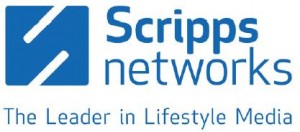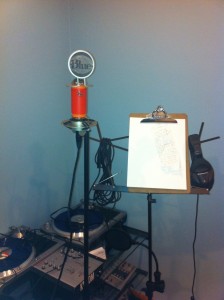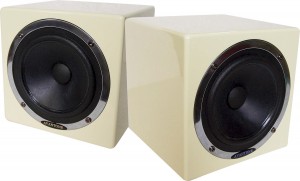Check out the music/sound design I did for the Quest Software logo ID. Have another client in the IT/Tech world I’m working with and will post that sample as well when available. Thank you, geeks!
NEWS
Scripps Don’t Pay Schizz
Scripps–a “leader in lifestyle media” but a loser in compensating composers. Anybody have any updates on this?

TuneSat has detected a lot of placements for me on some Scripps Network shows. I would have never known about them otherwise. I am fighting to get paid by the publishing company, as ASCAP apparently does not pay the backend.
One of the publishing companies I work with who placed these says they contract directly with Scripps and will pay me once my placements reach $50. So ASCAP is out of the picture entirely. With this particular publisher, I don’t get a share in the upfront license fees (this is an atypical arrangement for me–a sacrifice I willingly made in order to have non-exclusivity.) But without ASCAP involved, it’s not a very empowered place to be as a composer; I have no idea how they are tracking placements or determining the “value” of them the way the PROs do. I think this blog post explains a bit more:
According to the above post/site, “Scripps demands that all of the music for its shows be ‘direct licensed’. In other words they do NOT pay any performance royalties to composers. How do they get their music? Most likely from libraries that do a blanket license with the shows producers which, in most cases, means that you, as a composer, will not share in any of those blanket license fees. To be fair Scripps is not the only company that refuses to pay PRO monies. I believe ESPN is another company and their are probably more.”
(wish they’d use spell check their posts, by the way…lol…some scrappy but often useful info on this site…)
Anyway, at least TuneSat has helped to track things. I’ll be upgrading my account with them and doubling the amount of songs I track.
Again, this situation is like Pump Audio in that when you are one of too many artists in a huge library, and you don’t have exclusivity, you can’t expect much $$$.
Try to get an idea of how particular libraries work–how hard do they work to shop your tunes around? How do they communicate with you and do business with you as a composer? Are they forthcoming with giving you a copy of license agreements they make with their clients? What kind of placements do they typically make? Do they want to proactively work together with you to hunt down backend? If I don’t sense a strong relationship, I don’t work with them at all… or I limit the number of tracks and make sure those are non-exclusive, with a time limit on our agreement. No sense giving exclusive access to my tracks forever to a library that does nothing or just places 5 seconds as background music on some awful reality show. But another library that gets me on a national tv spot–that’s a whole different story!
Recently, I’ve been having such a poor experience with one library, no returned phone calls or emails in ages…I may need to work with my attorney to write them a letter requesting that they remove all my tracks from their library. Sigh. I hate to seem like an a**hole, but it just doesn’t make sense to continue down a fruitless path.
Pump Audio

So…something like 5 years ago, I went through the painful and laborious process of uploading some of my songs to Pump Audio‘s online portal. After the submissions being lost or rejected several times, and a few rounds of paperwork in their “old” and “new” forms, we finally got to the point where some of my tunes were accepted into their catalog. This was after a number of calls and emails to them–using some contact info I had to get through a friend who has a friend who works(ed) there.
So, thus far, not the most personal relationship, but I figured, we came this far, let’s see how it goes.
Just got an email notice last week about their online royalties system. Good step in the right direction, Pump. I guess there are some people alive over there! Today I got an email notice from “Workflow Mailer OAP1” (presumably Getty DB) to “~WF_ADHOC-398972” ( obviously me) with an unreadable attachment called “notification detail” (tried reading from gmail in 3 diff browsers, also tried downloading and opening, no luck). Sounds like Getty could use a real Product Manager over there to clean up the user experience. 🙂
So, I logged into my royalties area and can see that my track “Master Plan” (an earlier, grittier instrumental version of “Those Days”) was licensed by “Red Bull Media House GmbH”. (A quick scan of the term “GmbH” tells me that’s how the Austrians term LLCS). So I guess Red Bull Media House has a massive, ever-growing archive of inspiration extreme sports content. Anyway, per the invoice from Pump they purchased several audio synch licenses for this song at $2.38/pop (I collect half, Pump the other half). It doesn’t say anywhere on here why type of media this will be synched to–it is a blanket license to sync to video or web or whatever? And for what time period? Indefinitely? a year? Really vague. Knowing how these things go, maybe about 3 seconds of my song will be in the background of some dude doing a flip on a snowboard.
And $2.38 is a pretty sad number. Obviously Pump makes its money off of a large volume of artists in bulk. $2.38 is hardly enough money to pay for anyone’s time. Of course, this is more or less what I expected from a massive library and a non-exclusive deal. I’m just wondering if it’s really worth all the effort? I guess if they have 100 of these deals a day…that comes out to… $238. Still not much. Seems to me that working with a smaller number of quality artists and valuing their music higher would be a better biz model?
But at least we’re starting to see a little activity. I give Pump credit for trying to automate things and improve their system. At the price point above though, I won’t make an effort to give them any more tracks, even if it is non-exclusive. That’s the problem of massive, non-exclusive libraries and teeny licensing fees–you run the risk of devaluing your music too much.
If only everyone could be as awesome as my latest licensing partner, Studio 51 Music. I love the guy that runs the company–he really listens carefully to our pieces and also to our feedback. He and his developers have a fantastic online portal for submitting music/paperwork and they do regular UStream meetings to answer all our questions. Plus, I’m must honored to be among the ranks of all of their quality, talented composers.
With Studio 51 and TuneSat flanking me, I feel I’m set up for much better ongoing success in 2012.
Spark Condenser Mic : New Addition to my studio
 Very stoked to get started on vocal tracks using my new Spark condenser mic.
Very stoked to get started on vocal tracks using my new Spark condenser mic.
Yes–those are lyrics written on a receipt from Trader Joe’s. When creativity strikes, it can be anywhere…
Visit me sometime at my studio in the BETA Records production compound in Hollywood. Apparently, it used to be one of Charlie Chaplin’s production facilities; most of them have been torn down to build condos or strip malls. Ahh, L.A.!
Sunsweet Juice Commercial
Check this out…close friend and fellow yoga teacher Brittany Wilkerson stars in this Sunsweet Juice Ad–the very same one that features my song “Kushion”. Small world!
Informercial for Tria Laser
 My music is the theme music for the Tria Laser, an infomercial that ranks #25 on the list of most popular infomercials. It has aired thousands of times. Apparently, it’s one of the most successful infomercial-driven product launches in history. Many thanks to my licensing partner, Mainstream Source, on this project.
My music is the theme music for the Tria Laser, an infomercial that ranks #25 on the list of most popular infomercials. It has aired thousands of times. Apparently, it’s one of the most successful infomercial-driven product launches in history. Many thanks to my licensing partner, Mainstream Source, on this project.
I did get paid pretty nicely on this, but I should note that I had to go through a lot of extra effort with ASCAP to make sure that they would pay me for this. They may be better now but several years ago they were not good about tracking infomercials at all in their system. I had to open a special ticket and provide them with a lot of data, which included information from tune sat as well as the actual media buy information, which I was lucky enough to procure from Guthy Renker.
you can watch the clip below which still exists out on YouTube… My song “5 Good Teasons” appears at about:28 in.
Avantone Mixcubes
As soon as funds allow–maybe in July–I plan to get a pair of the Avantone Mixcubes. I’ve been hearing great things about them. You really get a bang for your buck since they are only $269 at Sweetwater. They’re 93dB efficient so you can run them on just about anything. Plus, they just look really cool. I love the sleek, retro design.
Anyone else using these puppies?
Latest Film/Music TV Survey
Ever wondered if what you’re getting paid for your film/tv/game tracks are commensurate with what’s being paid in the industry in general?
I’m definitely sure I’m NOT getting paid enough, or at least for ALL my placements. With TuneSat and some better ASCAP reps now in arming me with the technology and power I need to hunt down those ever-elusive back end royalties, hopefully that’s changing.
Here’s the latest 2011-‐2012 edition of Film Music Magazine’s Salary and Rate Survey, with data current as of June 2011. They compiled this information based on “extensive research, interviews and information gathered from professionals throughout the film and television music industry.”
Writer gets back music rights after all these years
Great piece about songwriter from the Village People, who has finally terminated a publisher’s rights to his music.
“When the Copyright Act amendments went into effect in 1978, it meant that songwriters could terminate copyright grants to publishers and record labels 35 years later. If they were to do so, however, they need to send their termination notices not fewer than two or more than 10 years from the intended termination date. The result is that 2013 is the first year in which musicians can effectuate a termination notice, and a number of them who created works in the late 1970s are now under the clock to do so or forfeit the right for the foreseeable future.”
http://www.hollywoodreporter.com/thr-esq/village-people-ymca-lawsuit-victor-willis-321576
Good Article on Approaching Music Blogs, Writers, and Other Music Press
This article has some great tips, in particular, how to pitch a unique story (you as the unique individual). In my case, I have the advantage of the still commonly-held view that women doing anything technical or with making beats is “unusual” and not a part of our DNA. Hogwash!
I also agree that keeping the story local (although Los Angeles is hardly a small town) is good, and as is being very specific about how you approach each person (and don’t spam them with follow up emails!)
